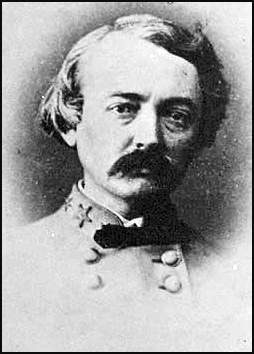
The
stubborn defense of Fort Fisher by North Carolina garrison troops
against overwhelming odds is a testament to their resolve and patriotism
– defending the Old North State to the last extremity. After enduring a
furious barrage of fire from enemy ships, they fought the invaders from
traverse to traverse and died like heroic men. Braxton Bragg refused
to reinforce them; their graves were robbed by Northern burial
contractors eager for profit.
Bernhard Thuersam, Chairman
North Carolina War Between the States Sesquicentennial Commission
"Unsurpassed Valor, Courage and Devotion to Liberty"
"The Official Website of the North Carolina WBTS Sesquicentennial"
Reinforcements Denied by General Bragg
“After
the first attack General [W.H.C.] Whiting appealed to General Bragg,
[Department of North Carolina] Commander[,] for reinforcements [to Fort
Fisher], asking for [General Johnson] Hagood’s South Carolina Brigade,
numbering about 2,000 efficient men, as his (Whiting’s) only consisted
of but one raw, inexperienced regiment that had never smelled powder
except in the first attack, which did not number over 700 efficient men.
Hagood’s
troops were veterans with experience in battle. Further appeals were
made for three Brigades of [General Robert F.] Hoke’s Division to be
placed where the Federals would possibly attempt a landing. General
Bragg denied the appeal saying he saw no necessity in carrying out these
suggestions.
With
his small band of brave men, General Whiting continued his efforts to
hold his Fort, and within reach of ample reinforcements that failed to
come. An heroic soldier and Commander, he gave his life for his
Southland he loved so dearly.
Col. [William] Lamb Addresses the Philadelphia Times, Nov. 18, 1881:
“On
revisiting Fort Fisher after the war, I found that the port burial
grounds, where enemy soldiers who died previous to the battle were
buried [next to Southern dead], had been robbed of all its dead and was
told that a contractor for the [Northern] Government had stolen their
bones in order to be paid for supplying them with coffins under an
appropriation to rebury the dead of the Northern army.
I
had this consolation when contemplating this act, that, although their
dust and ashes had been disturbed, their memories were none the less
precious to the Southern heart, nor their reward for duty done less
complete at the hands of Him who doeth all things well.
Similar
emotion filled my breast when I read the letter of General Braxton
Bragg to his brother, in which he seeks to take from the dead of Fort
Fisher an imperishable renown, and in which he seeks to excuse his
desertion of an heroic garrison.”
(Pictorial and Historical New Hanover County and Wilmington, N.C., William Lord DeRosset, editor, 1938)
